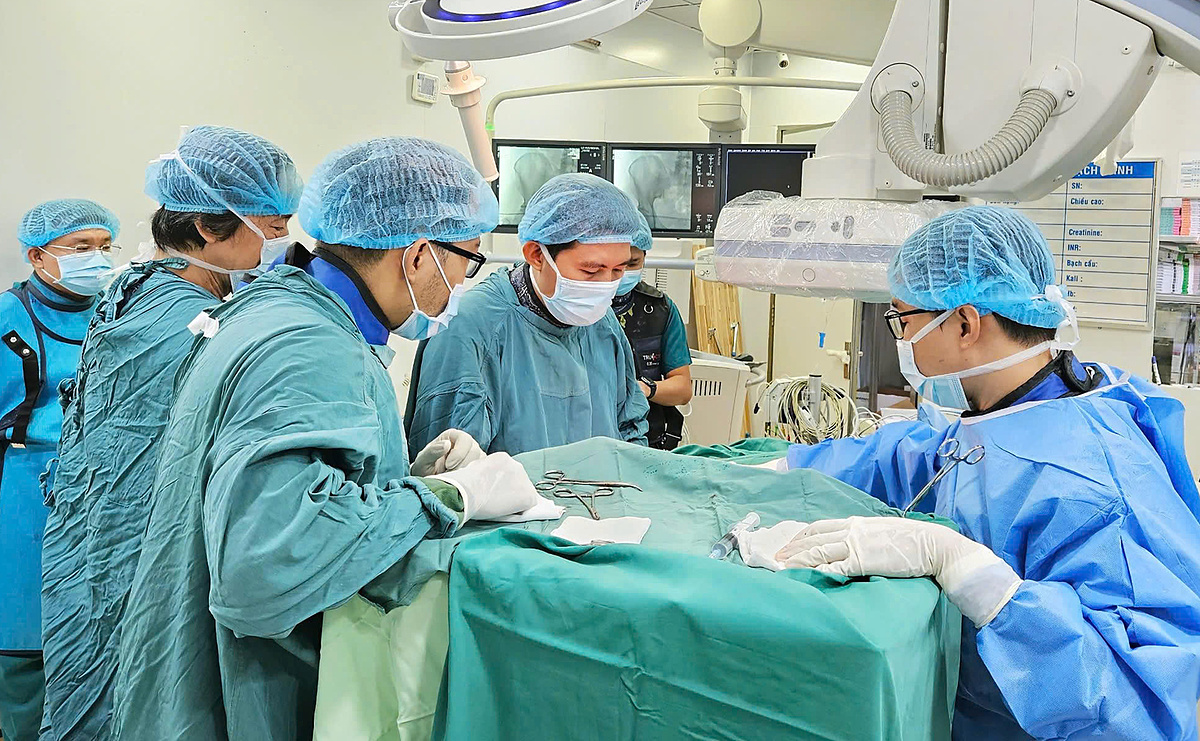His family called emergency services and performed CPR as instructed by the operator. The patient was taken to Thu Duc City Hospital, where doctors intubated him and continued resuscitation to stabilize his erratic heartbeat and blood pressure.
This was the second time the patient experienced cardiac arrest during sleep. The first incident occurred a few years ago. After being revived, he was diagnosed with Brugada syndrome but couldn't afford an implantable cardioverter defibrillator (ICD). His older brother died suddenly in his sleep at the age of 30.
"The patient's survival after a second cardiac arrest is incredibly rare," Dr. Nguyen Phuc Nguyen of the Cardiovascular Resuscitation Department said on 9/7.
The arrhythmia treatment team, under the guidance of Dr. Pham Huu Van, Vice President of the Vietnam Heart Rhythm Association, implanted an ICD. This small electronic device, placed under the skin near the chest and connected to the heart via electrodes, monitors heart rhythm 24/7. It can detect, treat, and prevent dangerous ventricular arrhythmias. The device has a lifespan of 7-10 years and is replaced when the battery depletes.
 |
Doctors implant an ICD in the patient. Photo: Hospital provided |
Doctors implant an ICD in the patient. Photo: Hospital provided
Brugada syndrome is a genetic disorder, estimated to affect between 1 and 5 in 10,000 people (0.01% - 0.05%), depending on the population and country. It typically affects young, seemingly healthy individuals, but carries the risk of sudden ventricular arrhythmia, leading to fainting, cardiac arrest, and death, especially during sleep.
Doctors advise patients and their families to be vigilant about potential arrhythmia triggers: high fever, certain medications affecting heart conduction, alcohol, stimulants, electrolyte imbalances, and chronic stress. Screening family members is crucial for early detection and timely treatment to prevent potential fatalities.
Le Phuong












